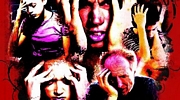|
|
 Acne (1,500) Acne (1,500)
 Addictions (1,500) Addictions (1,500)
 Advice (1,500) Advice (1,500)
 Allergies (1,092) Allergies (1,092)
 Alternative Medicine (1,500) Alternative Medicine (1,500)
 Anti Aging (1,500) Anti Aging (1,500)
 Breakup (1,500) Breakup (1,500)
 Cancer (1,499) Cancer (1,499)
 Dental Care (1,500) Dental Care (1,500)
 Disabilities (1,500) Disabilities (1,500)
 Divorce (1,500) Divorce (1,500)
 Elderly Care (1,498) Elderly Care (1,498)
 Goal Setting (1,500) Goal Setting (1,500)
 Hair Loss (1,500) Hair Loss (1,500)
 Health and Safety (1,497) Health and Safety (1,497)
 Hearing (1,500) Hearing (1,500)
 Law of Attraction (1,499) Law of Attraction (1,499)
 Marriage (1,500) Marriage (1,500)
 Medicine (1,497) Medicine (1,497)
 Meditation (1,499) Meditation (1,499)
 Men's Health (1,500) Men's Health (1,500)
 Mental Health (1,500) Mental Health (1,500)
 Motivational (1,500) Motivational (1,500)
 Nutrition (1,495) Nutrition (1,495)
 Personal Injury (1,499) Personal Injury (1,499)
 Plastic Surgeries (1,500) Plastic Surgeries (1,500)
 Pregnancy (1,496) Pregnancy (1,496)
 Psychology (1,500) Psychology (1,500)
 Public Speaking (1,500) Public Speaking (1,500)
 Quit Smoking (1,500) Quit Smoking (1,500)
 Religion (1,499) Religion (1,499)
 Self Help (1,500) Self Help (1,500)
 Skin Care (1,500) Skin Care (1,500)
 Sleep (1,500) Sleep (1,500)
 Stress Management (1,500) Stress Management (1,500)
 Teenagers (1,492) Teenagers (1,492)
 Time Management (1,500) Time Management (1,500)
 Weddings (1,500) Weddings (1,500)
 Wellness (1,500) Wellness (1,500)
 Women's Health (1,500) Women's Health (1,500)
 Women's Issues (1,500) Women's Issues (1,500)
|
Driver tiredness accounts for around one fifth of accidents on major roads, and is responsible for around 300 deaths per year on the UK's roads.
The road safety website Think! has recently launched a campaign to try to combat the issue of car accidents due to driver tiredness. The campaign will have a particular emphasis on people who drive for a living.
The company commissioned research into people who drive for work. This research confirmed that people who drive for work are an at risk group, demonstrating key risk behaviours such as talking on mobile phones whilst driving, speeding and driving whilst tired. However, although an at risk group, they do not recognise themselves as being at risk, nor do they recognise themselves as a group. THINK! therefore decided to address the key at risk behaviours, targeting the communications at drivers for work through the way they are placed. Campaigns on mobile phone use and speeding are already in place. The fatigue campaign has been developed specifically with the work driver in mind. It is hoped that the campaign can deliver its key messages of “tiredness kills” and “make time for a break”.
Think! hopes to reach its target audience that consists of young company car drivers under 30 years (e.g. Sales Reps), company car drivers aged 30-44 years (e.g. Sales Execs), HGV/LGV drivers, passengers and leisure drivers at weekends/holidays etc.
The main objectives of the campaign are to encourage drivers to take a 15 minute break every two hours of driving, increase awareness of the dangers of driving while tired and increase awareness of the signs/symptoms of driver sleepiness.
Facts about driving when tired:
* An estimated 300 people a year are killed where a driver has fallen asleep at the wheel.
* Research commissioned by the Government found that falling asleep at the wheel accounts for up to 20% of crashes on motorways or similar roads, and as many as one in ten of all crashes on Britain's roads.
* If you fall asleep at the wheel you are 50% more likely to die or suffer serious injury because a sleeping driver does not react before a crash.
* The greatest risk of falling asleep at the wheel is between midnight-6am and 2-4pm.
* It can affect any driver, but people who drive as part of their job may be more at risk. About 40% of sleep related crashes are work-related, inasmuch as they involve commercial vehicles.
* Alcohol and drugs (including some medicines) can make you more tired without you realising it.
Tips for drivers
* Plan your journey to include a 15 minute break every two hours of driving.
* Drinking 2 cups of coffee or other high caffeine drink and having a rest to allow time for the caffeine to kick in are effective methods of combating tiredness.
* Have a good night's sleep before setting out on a long journey.
* Remember the risks if you have to get up unusually early to start your trip, or have a long drive home after a full day’s work.
* Avoid making long trips between midnight- 6am and 2-4pm when natural alertness is low.
* Share the driving if possible.
* If you start to feel sleepy find a safe place to stop (not the hard shoulder of a motorway) as soon as possible.
* Opening the window or turning up the radio does little to prevent a driver from falling asleep at the wheel.
|
|
|



